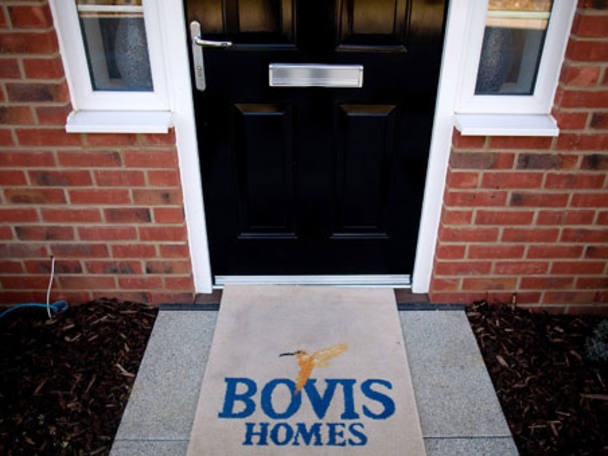Shares in Bovis Homes (BVS) have underperformed their rivals this year. While their price is up 27 per cent, this is lacklustre compared with price rises in, say, Persimmon (up 70 per cent) and Barratt Developments (up 112 per cent). Meanwhile, Bovis's share price still hovers around its underlying net asset value. So there should still be plenty of catching up to do.
- Shares barely above net asset value
- Average selling prices up
- Operating margins set to reach 13 per cent
- Net cash position expected by the year-end
- Modest dividend yield
- Housing market still vulnerable
Bovis's trading has been perfectly acceptable. Pre-tax profits in the first half of 2012 doubled to £16.2m and the interim dividend was doubled to 3p per share. And there remains room to raise the payout as it was covered nearly three times by after-tax earnings. Operating profit margins climbed from 7.5 per cent to 10.3 per cent, and management is pencilling in 13 per cent for the full year. True, the rarified margins of 22 per cent achieved in 2007 before the housing market collapsed may not be seen again for a generation, but they give an idea of the scope for further improvement.
The big drivers behind rising profits are greater use of cheap land bought after the market collapsed and a steady increase in house prices - up from £180,100 on average last year to around £190,000 by the third quarter. Bovis has also been increasing the number of sales outlets, up 12 per cent to 83. It plans to have 90 selling sites by the end of the year, and 105 in 2013. Net reservations per site per week at 0.46 homes are up slightly from 0.45 a year earlier.
However, the UK mortgage market remains tough, despite incentive schemes to help buyers on to the first rung of the housing ladder. Yet first-time buyers only account for a quarter of new homes sold and solid demand from existing homeowners meant that, by the end of the third quarter, Bovis had secured sufficient reservations to meet its 2012 sales targets; completions in the 45 weeks to 9 November were up from 1,517 a year earlier to 1,669. Management reckons the figure will have risen to around 2,350 by the end of the year.
| BOVIS HOMES (BVS) | ||||
|---|---|---|---|---|
| ORD PRICE: | 548p | MARKET VALUE: | £733m | |
| TOUCH: | 546-548p | 12-MONTH HIGH: | 555p | LOW: 392p |
| DIVIDEND YIELD: | 2.3% | PE RATIO: | 13 | |
| NET ASSET VALUE: | 547p | NET DEBT: | See text | |
| Year to 31 Dec | Turnover (£m) | Pre-tax profit (£m) | Earnings per share (p) | Dividend per share (p) |
|---|---|---|---|---|
| 2009 | 282 | 4.8 | 2.8 | nil |
| 2010 | 299 | 18.5 | 10.6 | 3.0 |
| 2011 | 365 | 32.1 | 17.5 | 5.0 |
| 2012* | 453 | 55.0 | 27.9 | 9.8 |
| 2013* | 538 | 72.0 | 40.8 | 12.6 |
| % change | +19 | +31 | +46 | +29 |
Normal market size: 3,000 Matched bargain trading Beta: 1.2 *Deutsche Bank forecasts | ||||
To service this demand, Bovis has been busy buying more land. In the second half of 2012 it acquired 2,331 consented plots on 16 sites and, most important, a majority are in the south-east of England where the housing market is resilient. Another 1,000 plots on eight sites with planning permission are in the final stages of acquisition.
In addition, in the first half Bovis added 1,037 consented plots on eight sites for £64m. These plots, three-quarters of which are also in the south-east, could generate £239m at current sales prices and, after deducting building costs, deliver gross profits of £61m - a gross margin of 25.4 per cent. While most land purchases are for consented sites, Bovis has also been adding to its 'strategic' land bank from which it selects sites and takes them through the planning procedures. At the end of June these plots numbered 19,829 - enough for over eight years' of output at current rates.
Spending this sort of money means that the £22m net cash position reported at the half-year turned into a net debt of £65m by last month. However, Bovis's bosses reckon the group will have net cash by the end of the year. And they are keen to use the group's capital better - making greater use of acquiring land on deferred terms and keeping a tight control on costs; and where they get really good offers, they will sell sites with planning consent.










